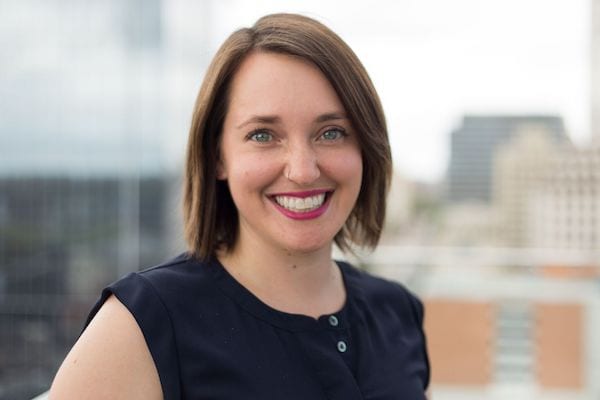The company has seen some promising improvements in gender inclusion, with 57 percent of their tech grads in Australia and the US being female in 2017 and 18% percent of their technical workforce hires now female– up from 10% a couple of years ago.
The company is also surprisingly (and refreshingly) transparent about its shortcomings on diversity, with its August 2017 diversity report noting that while they have seen an uptick in female hires, they’ve fallen short on other under-represented minorities. They’re determined to examine attitudes on diversity more closely with their latest survey, the State of Diversity 2018, doing just that.
Atlassian leads the pack of Australia’s most celebrated ‘unicorn’ tech companies, founded by Mike Cannon-Brookes and Scott Farquhar, and now based in Silicon Valley.
Over the weekend I spoke with the company’s global head of diversity, Aubrey Blanche about her hopes for a culture of ‘belonging’ and ultimately fostering greater diversity within the company.
Appointed to the role three years ago, Blanche said she took the position because she saw a real opportunity to address systemic exclusion — as well as a leadership team that was genuine about a desire for change.
“I had done some research and seen how humble they were and willing to take responsibility, to say we really care about people who work for us, at a human level,” she says.
“That mindset was something that can be rare in technology, but it’s what is actually essential for creating change.”
However, some of the messaging they were putting out to the market, particularly on recruitment, was potentially limiting its appeal to a diverse range of people.
“We did a comprehensive overhaul in our messaging. Were the photos balanced? Were we talking about the broad benefits of working here? Yes we have free food and beer, but we also pride ourselves on work life balance and collaborative work. We needed to ensure we could appeal to a different set of employees.”
They also addressed the language in job ads and created standardised interviews in order to move away from appealing to a ‘cultural fit’. “We try to address values alignment in interviews,” she said. Speaking on the ABC’s Q&A on Monday night, Blanche described ‘cultural fit’ as the “intractable morass of unconscious bias”
And then Atlassian aimed to specifically address ways in which people could feel like they belong at the team level.
“We should be focusing on building diversity and inclusion at the team,” she says.
And that means ensuring wider buy-in on the issue, and encouraging everyone to feel they can do something to make other people feel more included.
“If you ask an average worker to empower a woman, they may not know what that really means,” she says. “But ask them to help make their team a little more welcoming, that feels like something they can actually do. If every person just tries to do that for their team, we will see change.”
Central to Atlassian’s strategy is equipping managers with a number of tactics and approaches they can utilise to make people feel included. For example, a ‘no interruptions rule’ for meetings is “something leaders of teams can implement, either formally or informally,” Blanche believes.
A no-interruptions rule could encourage more people to speak up during meetings, so diversity is not just happening in numbers, it’s also playing out in some of the ideas and solutions being developed.
Blanche believes there are three key reasons why some tech companies are stalling on diversity.
The first is ‘diversity fatigue’. “No matter where you on this issue, whether you’re an advocate or not, you’re probably tired,” she says. “If you haven’t seen much change, it’s easy to get discouraged.”
Second, Blanche believes many companies are having the wrong conversations about diversity and inclusion. “You see programs that are too often focused on increasing the representation of a narrowly defined category, instead of focusing on changing the culture. But if you address the culture, the numbers piece will follow,’
And finally, given the current political environment in the US as well as the #MeToo movement, Blanche adds that some people are waking up to just how systemic and entrenched some of these issues are. As such, they could be overwhelmed and unsure of their capacity to affect change.
Atlassian is pushing its team-level approach to diversity to now further address what it concedes are its shortcomings on diversity: “Failing to improve the overall percentage of underrepresented minorities (URM) in our U.S. offices during our continued rapid growth.”
It will also introduce intersectional data in its next diversity report, recognising unique contributing factors which pose challenges for some individuals. Next year they will be releasing ‘team belonging’ stats also.


